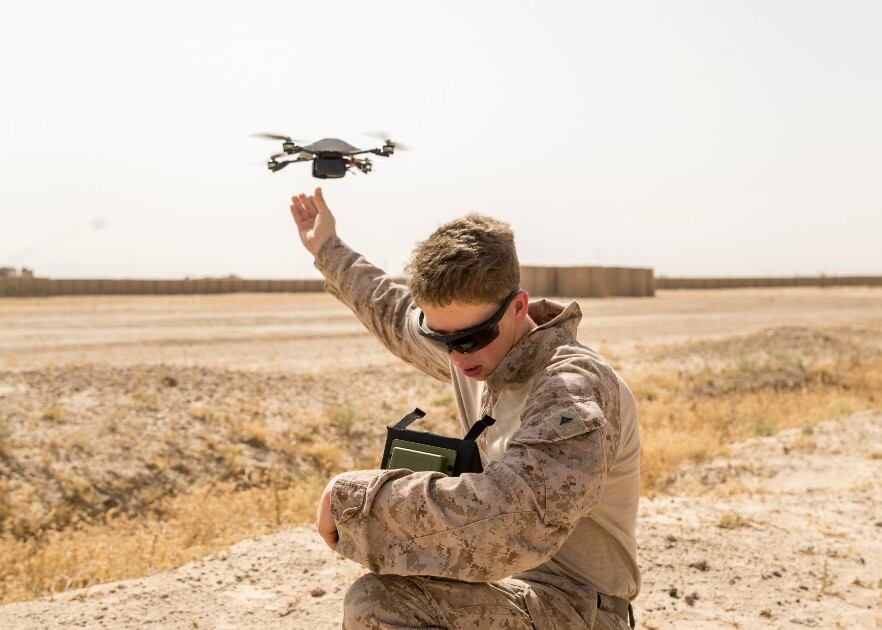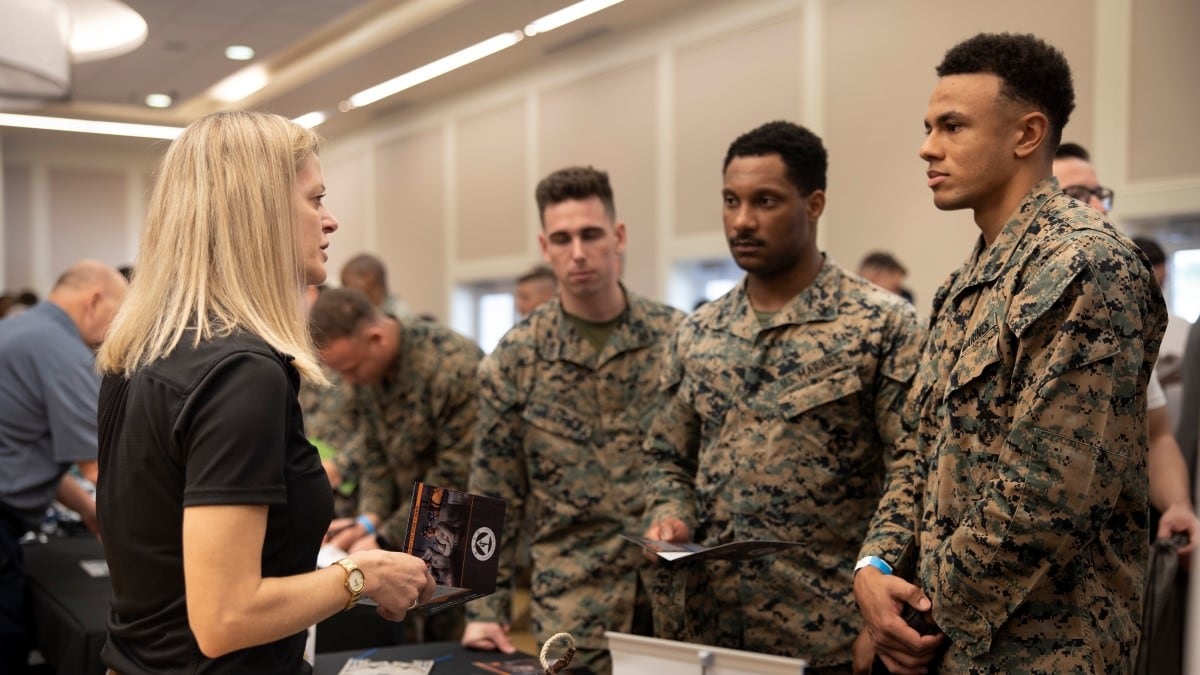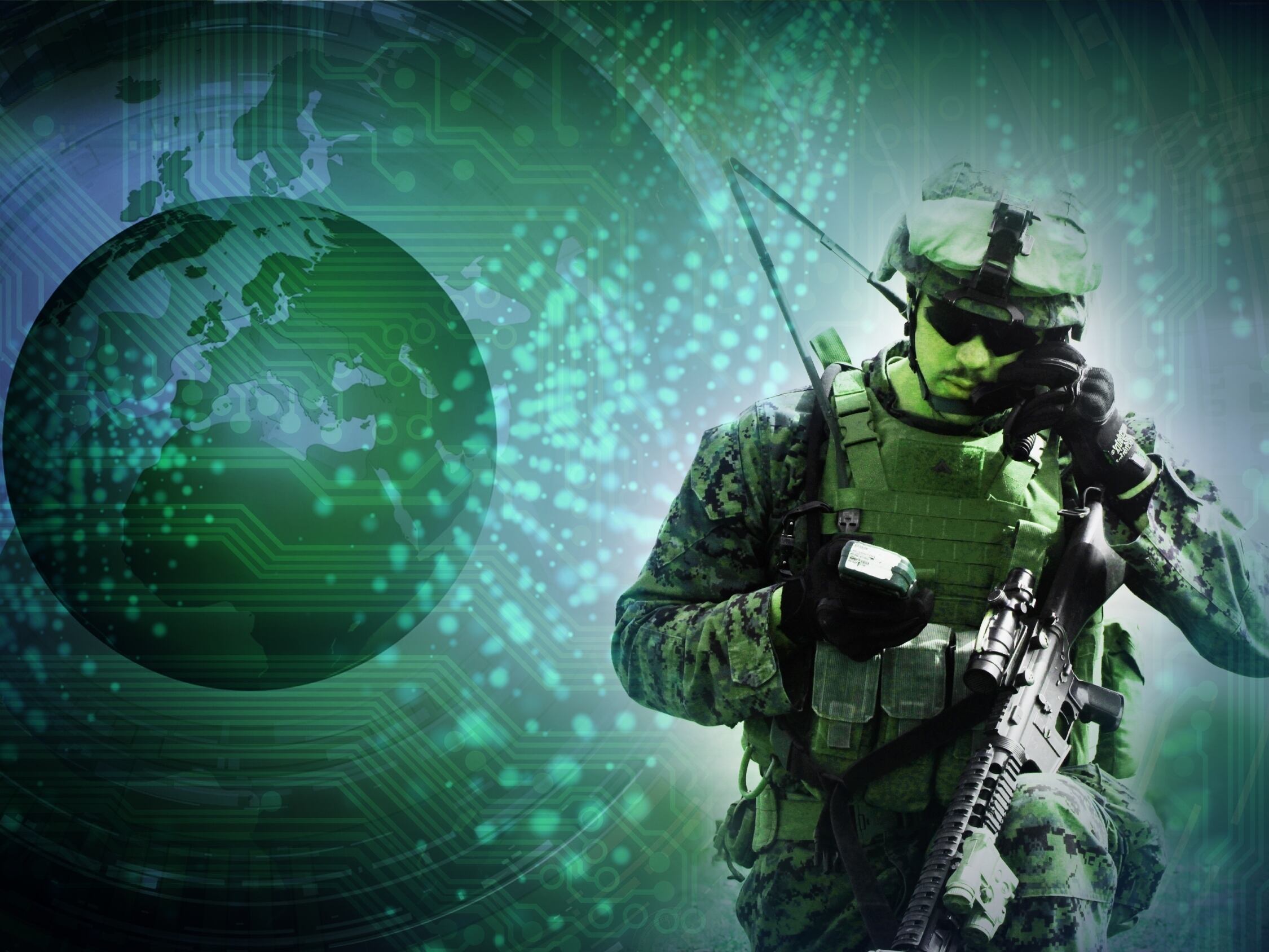Plans to bolster the Marine Corps’ cohort of cyber experts are moving forward, but this new unit won’t be donning the Marine Corps uniform.
The Corps will create a new Cyber Auxiliary division, Commandant Gen. Robert Neller said Monday, and its new force will not be beholden to strict Marine grooming standards.
“We are going to do a Marine Corps Cyber Auxiliary, for the record,” Neller said at the Future Security Forum in Washington.
“If anybody wants to join, you can sign up. You can have purple hair, too, but no [Eagle, Globe and Anchor]."
The comment was easy to dismiss as a joke, but Marine officials said the Cyber Auxiliary unit is a serious endeavor that is moving forward, although confirmed details are scarce.
“I will confirm, however, that the CMC was not joking about the creation of a new cyber unit,” said Capt. Joseph Butterfield, Headquarters Marine Corps spokesman.
To underscore the need for unconventional approaches to manpower, Neller recounted a 2015 event in Silicon Valley. Neller said he was surrounded by experts from all over the world for five days of lectures on directed energy, biomechanics, artificial intelligence and more.
“You just sit there and go: ‘Wow, I had no idea,’” he said. “You have to kind of open up your mind a little bit.”
While new technology is being introduced, fundamental military principles like training hard and maintaining discipline remain.
“At some point in the fight, there may be a time where somebody’s going to stand on a piece of ground with a weapon in their hand and say ‘this is mine; you can’t have it,'" Neller said. “But to get to that point, you have to control your network and deny them theirs.”
The need for specialized cyber experts is one felt across the Defense Department, and even the federal government at large. Military leaders have found it difficult to coax talented computer and tech wonks away from lucrative six-figure salaries and into public service.
The new Cyber Auxiliary unit appears to be a workaround.
It also appears to address concerns from Marines that were voiced over the past few years when the idea of “lateral entry” into the service for cyber experts was introduced — the option of skipping boot camp and putting on a uniform as a mid-career rank upon entry into the service.
Because the new force will not be wearing the Eagle, Globe and Anchor, they won’t be Marines who went through boot camp.
Still at question, though, is what exactly a Cyber Auxiliary will do. “Cyber expert” is sometimes used as a catch-all by government officials, ranging from white-hat hackers, to information technology professionals to intelligence collectors.
Whether the cyber operators will be in the field, or relegated to air-conditioned offices, is yet to be seen. But putting civilians into operational roles has some complications, Marine Corps Times previously reported.
For instance, legally, some offensive cyber operations would have to be carried out by an uniformed service member.

Modernizing the Corps is a major recent focus. It has included such pushes as fielding all 32 infantry battalions with small quadcopter drones and implementing a new 12-man rifle squad model to free up Marines for areas like cyber and intelligence.
But the modernization push also means introducing automated vehicles like amphibious-ship launched sea drones. Those change the way warfare is conducted as well.
Neller was bullish on Monday regarding the possibilities for naval and air automation, including swarming underwater and aerial drones. But he remained skeptical of ground automation at it’s current level.
“Obviously, autonomy, robotics, manned-unmanned, that’s all happening,” he said. “Pretty much every vehicle you have can be driven autonomously. I mean, the other day they drove an amphibious assault vehicle up and down the beach, driven by somebody with a controller."
“That sounds great until it throws track and the robot can’t put a track back on. And the robot can’t do security, and then I’m going to ask you if you’re going to put your son or daughter in the back of that thing without a human driving?”
Kyle Rempfer was an editor and reporter who has covered combat operations, criminal cases, foreign military assistance and training accidents. Before entering journalism, Kyle served in U.S. Air Force Special Tactics and deployed in 2014 to Paktika Province, Afghanistan, and Baghdad, Iraq.








